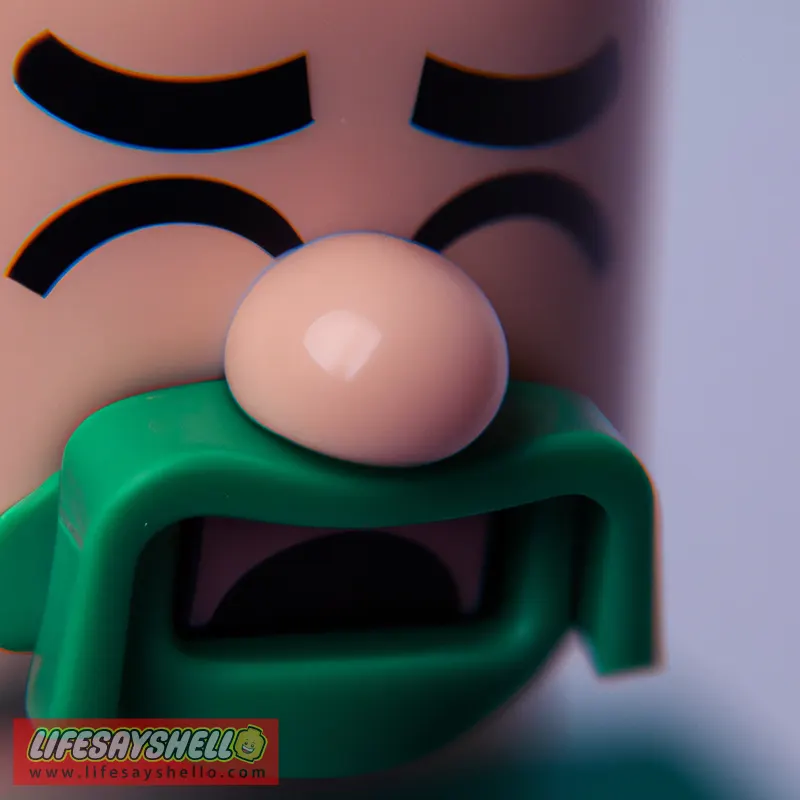Why Does My Breath Always Smell So Bad? 9 Common Causes & Fixes

Have you ever caught a whiff of your own breath and been totally embarrassed? Chronic bad breath can make you want to hide in a corner and never speak to anyone again. But don't despair - understanding the root causes of bad breath can help you fix it for good.
We all have bad breath sometimes, especially first thing in the morning. But if you find yourself constantly battling dragon breath no matter how much you brush your teeth, there are likely some other issues at play.
In this post, we'll explore the most common culprits behind bad breath, plus give you tips to freshen up for good. With a solid oral hygiene routine and a few key lifestyle changes, you can kiss chronic halitosis goodbye.
Poor Oral Hygiene
This one may seem obvious, but poor oral hygiene habits like inadequate brushing and flossing are by far the most common cause of bad breath. When you eat, tiny food particles get left behind in your mouth. Bacteria immediately start feasting on these food particles and releasing foul-smelling sulfur compounds as waste products. Yum!
Without proper oral hygiene, that bacteria continues to thrive and multiply. Plaque buildup also creates an ideal breeding ground for odor-causing bacteria. As plaque thickens, it hardens into tartar that can only be removed by professional dental cleaning.
- The Fix: Brush your teeth thoroughly at least twice a day and floss once a day. Be sure to brush your tongue too. This scrapes away bacteria and food debris. Use a mouthwash to kill bacteria and keep your breath fresh longer. If it's been more than 6 months since your last dental cleaning, schedule a visit to get rid of any lurking tartar.
Dry Mouth
Saliva helps cleanse your mouth by washing away food particles and bacteria. But when saliva production drops, these odor-causing bacteria can just hang out in your mouth and multiply. Voila - stinky breath.
Certain medications like antihistamines, decongestants, pain meds, and antidepressants can cause dry mouth. Medical conditions like diabetes and autoimmune disorders can also reduce saliva flow. As we age, our salivary glands produce less saliva too.
- The Fix: Drink lots of water to stimulate saliva production. Avoid alcohol and caffeine, which can dehydrate you. Chew sugar-free gum or suck on sugar-free hard candies to get those salivary glands in gear. Use an oral moisturizer like Biotene to supplement low saliva.
Smoking and Tobacco Use
Cigarette smoke not only causes its own unpleasant mouth odor, it also dries out your mouth and allows odor-causing bacteria to thrive. Smokers are more prone to gum disease, another source of bad breath. Smokeless tobacco products like chewing tobacco are equally as stinky.
- The Fix: The only surefire way to stop smoking breath is to quit completely. See your doctor for help creating a smoking cessation plan. Drink more water, use a mouthwash, and suck on mints or minty gum throughout the day to mask odors in the meantime.
Certain Foods
Garlic and onions contain pungent oils that get absorbed into your bloodstream and lungs before being exhaled out. So even if you brush right after eating them, you'll still have garlic breath. Other culprits include dairy, meat, fish, citrus, coffee, and alcohol.
- The Fix: Avoid eating these foods right before important meetings or dates where you want fresh breath. Use mouthwash and chew mint gum after eating them to freshen up. Overall, limit foods that seem to bother you most.
Acid Reflux
Gastroesophageal reflux disease (GERD) causes stomach acid to back up into your esophagus and mouth. This reflux of acidic stomach contents provides the perfect environment for odor-causing bacteria to thrive. Acid reflux can also damage tooth enamel over time, leading to increased plaque buildup.
- The Fix: Avoid trigger foods, eat smaller meals, don't lie down right after eating, and take antacids as needed. Your doctor may prescribe medication to reduce acid production. Don't brush right after reflux episodes since the acid can damage tooth enamel.
Oral Infections and Gum Disease
Gum disease occurs when plaque builds up along and under the gumline, creating inflammation and pockets that become infected. Pus and bacteria collect in these pockets and release sulfur compounds that smell really bad. Untreated gum disease can damage tissues and bone, causing tooth loss.
- The Fix: See your dentist if you notice red, swollen, bleeding gums or persistent bad breath. You may have gum disease that requires deep cleaning and antibiotics to treat infected pockets. Left untreated, the damage can become irreversible. So don't delay - get a professional dental exam.
Medications
Certain prescription and over-the-counter medications can indirectly cause dry mouth, which allows odor-causing bacteria to grow. Medications that have this side effect include:
- Antihistamines
- Decongestants
- Pain medications
- High blood pressure medications
- Antidepressants
- Diuretics
- Muscle relaxants
- The Fix: Speak to your doctor if you suspect a medication is causing dry mouth or bad breath. They may be able to adjust the dosage or switch you to an alternative that doesn't have this side effect. Be sure to drink plenty of water too.
Stress and Anxiety
When you're stressed or anxious, you tend to breathe through your mouth more. This drying effect allows odor-causing bacteria to thrive. Grinding or clenching your teeth when stressed also wears down tooth enamel, increasing your risk of cavities and gum disease.
- The Fix: Develop healthy stress relief habits like exercise, meditation, getting enough sleep, and talking to a therapist. If you notice yourself clenching or grinding due to stress, ask your dentist about a mouthguard to protect your teeth.
Low Saliva Flow
Along with dry mouth, normal aging can simply cause your salivary glands to produce less saliva. This allows odor-causing bacteria to hang around longer before being washed away.
- The Fix: Drink lots of water and limit caffeine and alcohol to stimulate saliva production. Sugar-free gum and oral moisturizers can also help supplement low saliva.
Dieting or Fasting
When you severely restrict calories or fast for religious purposes, your body goes into ketosis. This produces ketone bodies that give your breath a fruity, unpleasant odor. Fasting and limiting food intake also reduces saliva flow, allowing bacteria to multiply.
- The Fix: Stay well hydrated during periods of fasting or low-calorie dieting. Use mouthwash and mints to freshen your breath. Talk to your doctor if you need help maintaining a healthy, balanced diet.
Nose and Sinus Problems
Post-nasal drip from sinus infections or allergies can cause bad breath. When nasal mucus runs down the back of your throat, it carries odor-causing bacteria with it. These bacteria thrive in the warm, moist environment of your throat.
- The Fix: Treat sinus infections with antibiotics as prescribed by your doctor. For allergies, take antihistamines or use a nasal steroid spray to reduce mucus production. Stay well hydrated to thin out mucus.
When to See a Doctor About Bad Breath
While everyone experiences bad breath now and then, chronic halitosis, especially when accompanied by other symptoms, deserves a trip to the doctor. See your physician or dentist if:
- You still have bad breath after improving oral hygiene habits
- You notice signs of gum disease like red, swollen, or bleeding gums
- You have white patches inside your mouth
- You have other concerning symptoms like sudden weight loss, fever, or fatigue
- You cough up blood or have sores that won't heal inside your mouth
When bad breath persists despite your best efforts, an underlying health condition may be to blame. Your dentist or doctor can perform exams and tests to identify factors like gum disease, infections, diabetes, kidney disease, or even cancer. Treating the underlying condition is key to stopping bad breath.
Tips for Fresher Breath
While you work to treat the root cause of your stinky breath, you can take steps to mask odors and keep your mouth clean. Here are some tips to freshen your breath until you can get to the bottom of the problem:
Brush and floss thoroughly. Give your teeth a good two minutes of scrubbing at least twice a day. And don't forget to floss at least once daily to remove hidden food particles.
Scrape that tongue. Use a tongue scraper or brush your tongue when you brush your teeth. This removes odor-causing bacteria hiding on your tongue's surface.
Use an antiseptic mouthwash. Look for mouthwashes containing cetylpyridinium chloride to kill bacteria and leave your breath minty fresh. Don't just mask odors with mouthwash - keep brushing too!
Drink green tea. The polyphenols in green tea kill odor-causing bacteria and help neutralize bad breath. Other antioxidant-rich teas can have similar benefits.
Chew gum or suck on mints. Chewing gum and mints stimulate saliva flow to help wash away bacteria. Look for sugar-free options with mint flavoring for extra freshness.
Limit smelly foods. Avoid garlic, onions, and other culprit foods before big meetings or dates where you want fresh breath. Drink milk and water after eating them to help rinse your mouth.
Drink more water. Staying hydrated keeps your mouth moist and helps thin out mucus. Aim for eight 8-ounce glasses per day.
Use a humidifier. Keeping the air moist with a humidifier can help prevent dry mouth and the resulting bad breath.
Quit tobacco. Cigarettes and chewing tobacco cause their own unpleasant mouth odors. See your doctor for help kicking the habit for good.
Visit your dentist regularly. Get a dental exam and cleaning every 6 months to prevent plaque buildup and treat gum disease before it gets worse.
Consider probiotics. Some small studies suggest probiotic lozenges and supplements may help balance oral bacteria linked to bad breath. Ask your doctor.
Use a neti pot. Flushing out nasal bacteria with a saltwater nasal rinse can help if post-nasal drip is the culprit behind your bad breath.
Avoid coffee and alcohol. Both coffee and alcohol can dry out your mouth while allowing odor-causing bacteria to thrive. Limit intake or rinse your mouth after drinking them.
With some diligent oral hygiene, lifestyle changes, and help from your dentist and doctor, you can get to the bottom of bad breath problems. While it may take some trial and error, you can find the right combination of solutions to keep your breath fresh all day long. Don't give up - defeating bad breath is possible!




Comments